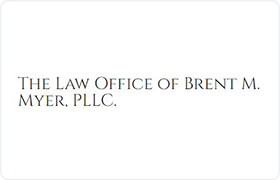Port Saint Lucie Bankruptcy & Debt Lawyer, Florida
Sponsored Law Firm
-
 x
x

Click For More Info:
-
Law Office of Brent M. Myer, PLLC
27 SE Ocean Blvd Stuart, FL 34994» view mapBankruptcy & Debt Your Local Bankruptcy Attorney
Brent M. Myer has over 15 years of consumer bankruptcy experience and has represented both debtors and creditors in the past.
772-873-7794
Steven A. Long
✓ VERIFIEDBankruptcy & Debt, Divorce & Family Law, Estate, Power of Attorney, Elder Law
The hiring of a lawyer is an important decision that should not be based solely on advertisements. Before you decide, ask us to send you free written ... (more)
Clayton B. Gordon
Business Organization, Wills & Probate, Real Estate, Bankruptcy
Status: In Good Standing
FREE CONSULTATION
CONTACTLee A. Rosenthal
Estate Planning, Elder Law, Corporate, Bankruptcy
Status: In Good Standing Licensed: 41 Years
Edmond Warren Alonzo
Mediation, Credit & Debt, Criminal, Commercial Real Estate
Status: In Good Standing Licensed: 29 Years
John Walter Chapman
State and Local, Workers' Compensation, Insurance, Bankruptcy, Personal Injury
Status: In Good Standing Licensed: 25 Years
Michael Robert Grant
Employee Rights, Contract, Credit & Debt, Personal Injury
Status: In Good Standing Licensed: 23 Years
Barbara A Cook
Lawsuit & Dispute, Admiralty & Maritime, Industry Specialties, Bankruptcy
Status: In Good Standing Licensed: 29 Years
Scott W Turnbull
Contract, Credit & Debt, Civil Rights, Trusts
Status: In Good Standing Licensed: 18 Years
 Brent Myer Stuart, FL
Brent Myer Stuart, FL Practice AreasExpertise
Practice AreasExpertise

